- A 30 times concentrate of ume plum.
- Use the included spoon to measure one gram of concentrate into one cup of hot water or tea.
- A powerful alkaline food in a convenient and easy to use form.
- Traditionally valued as a digestive aid, it acts as a catalyst in the absorption of minerals.
- For every kilogram (2.2 lb.) of fresh plums, only 20 grams of ume concentrate is obtained, resulting in 30 times the concentration of pickled ume plums without the high sodium content of umeboshi plums.
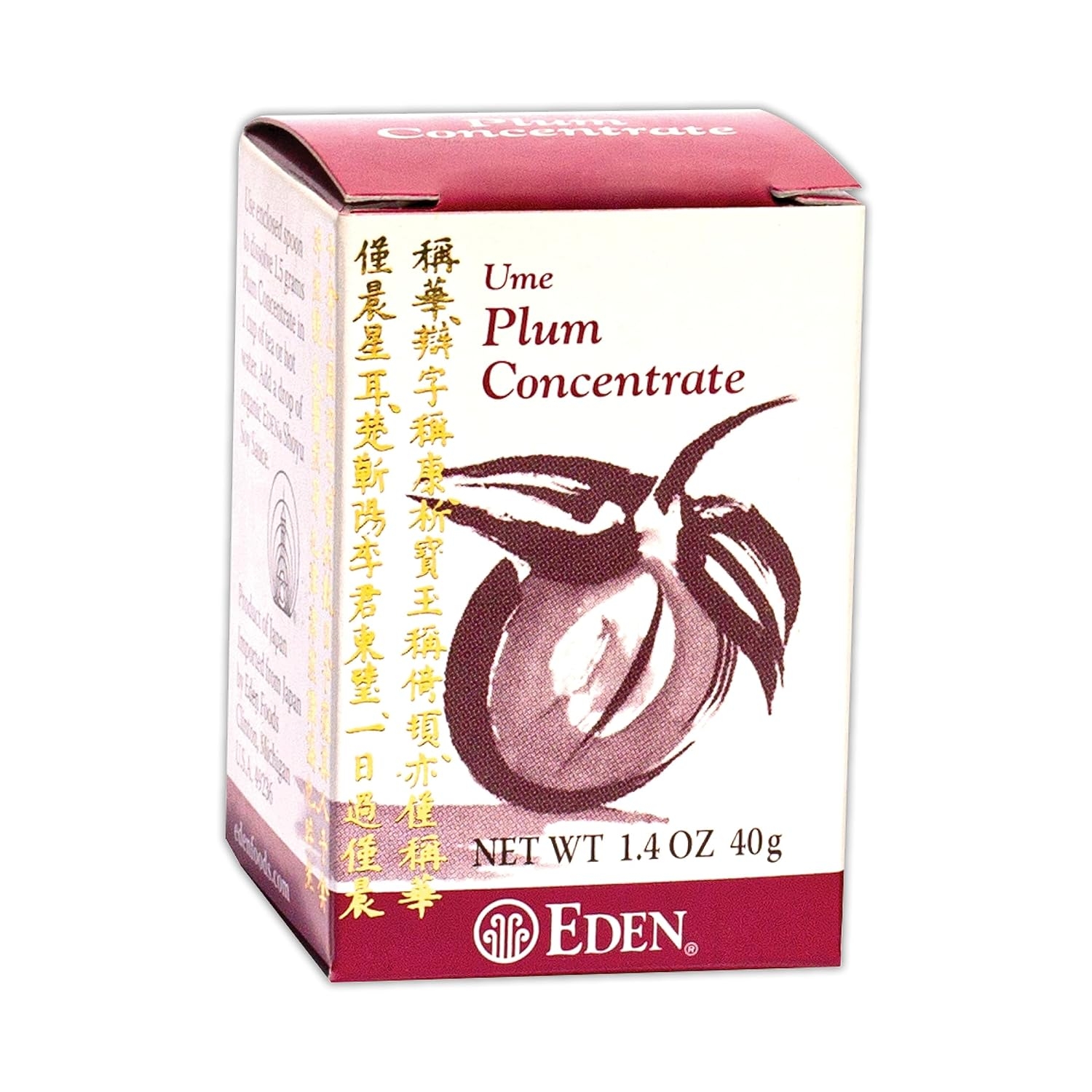
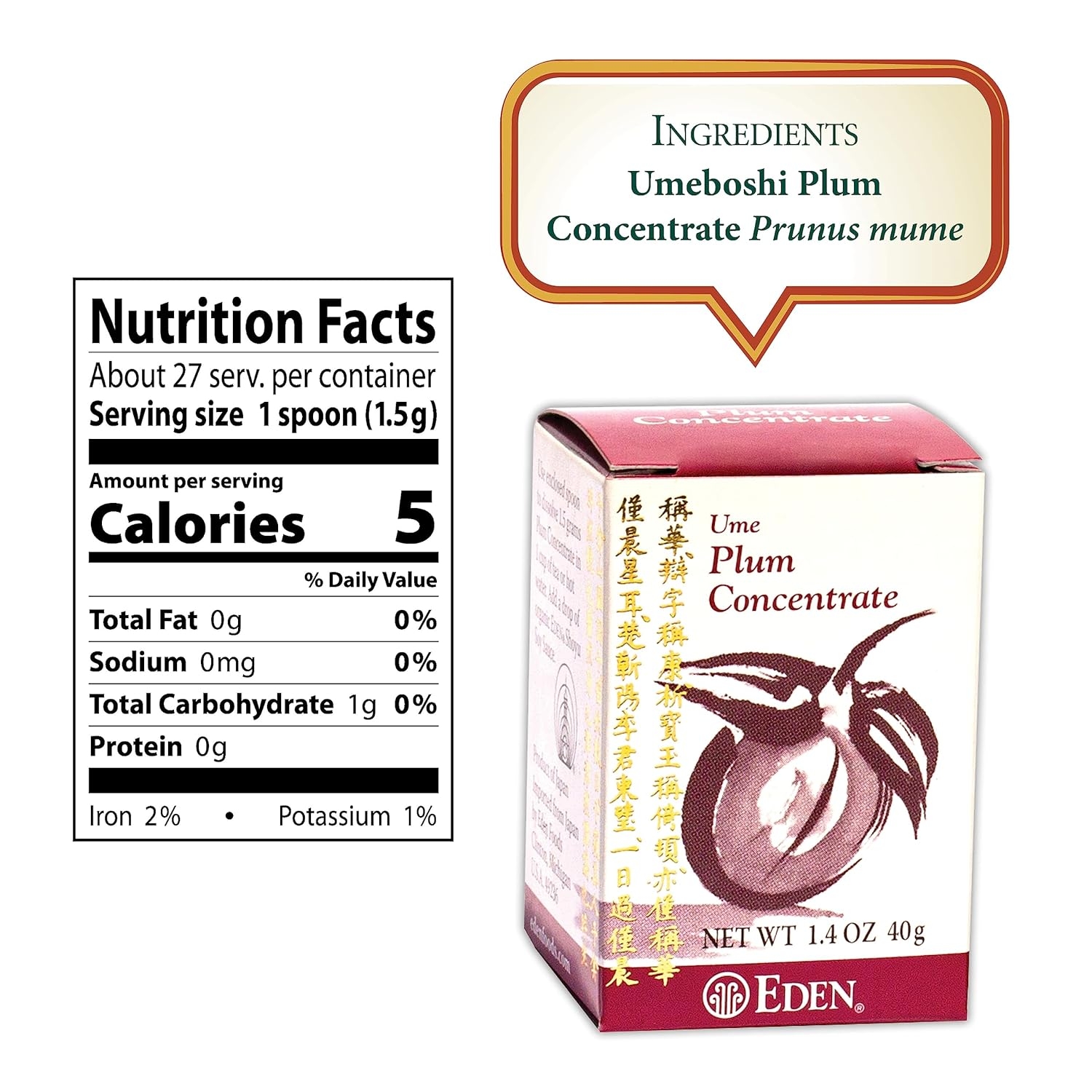
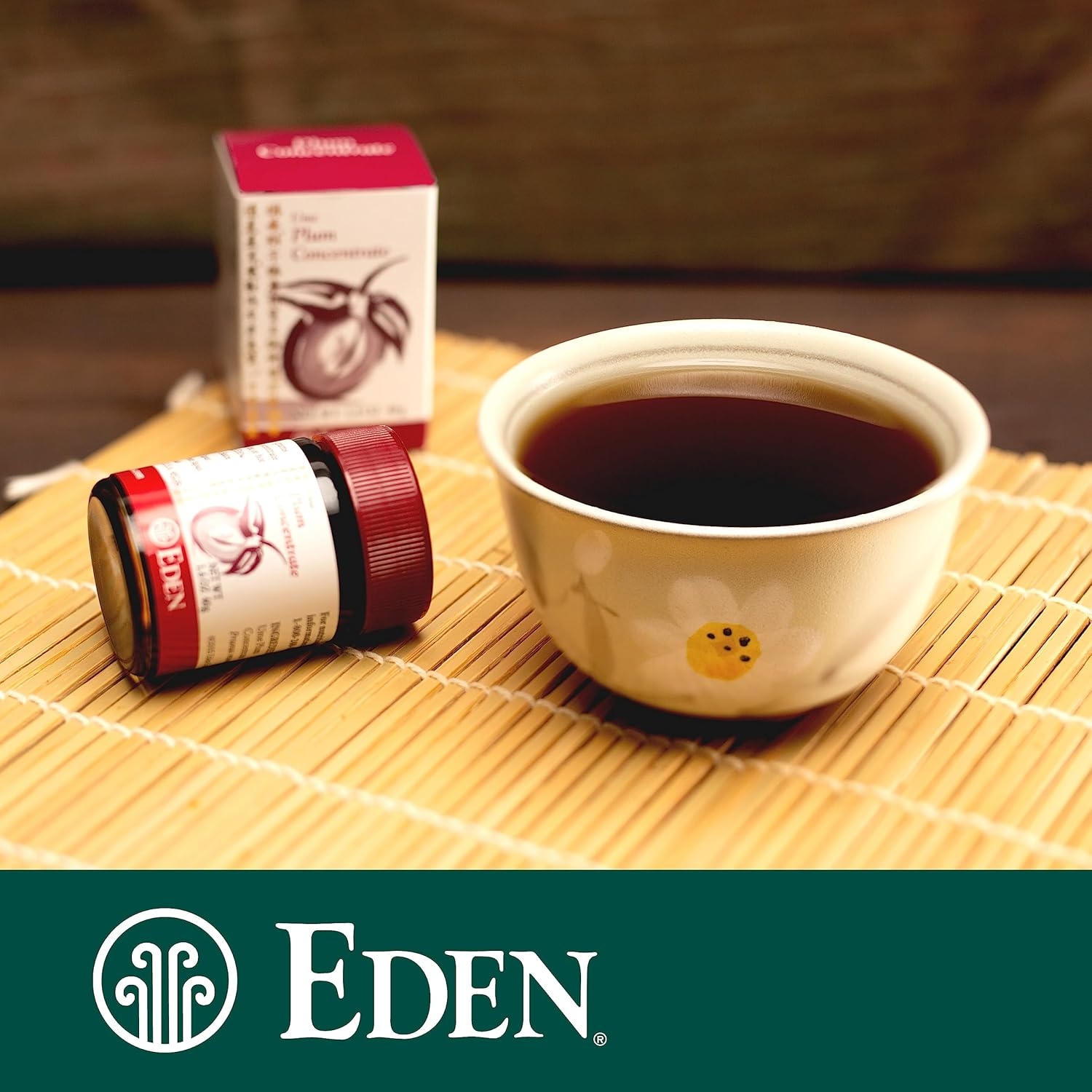
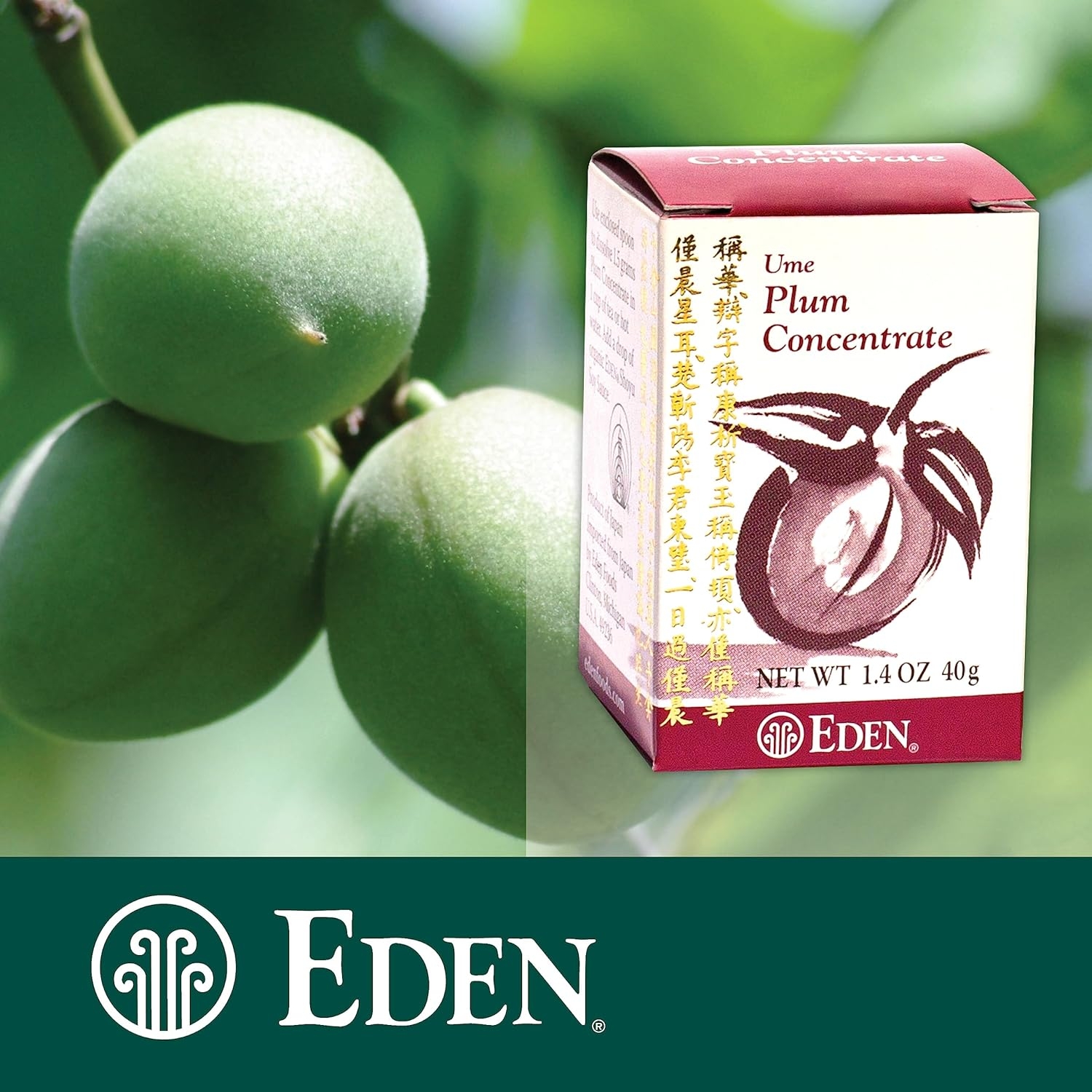
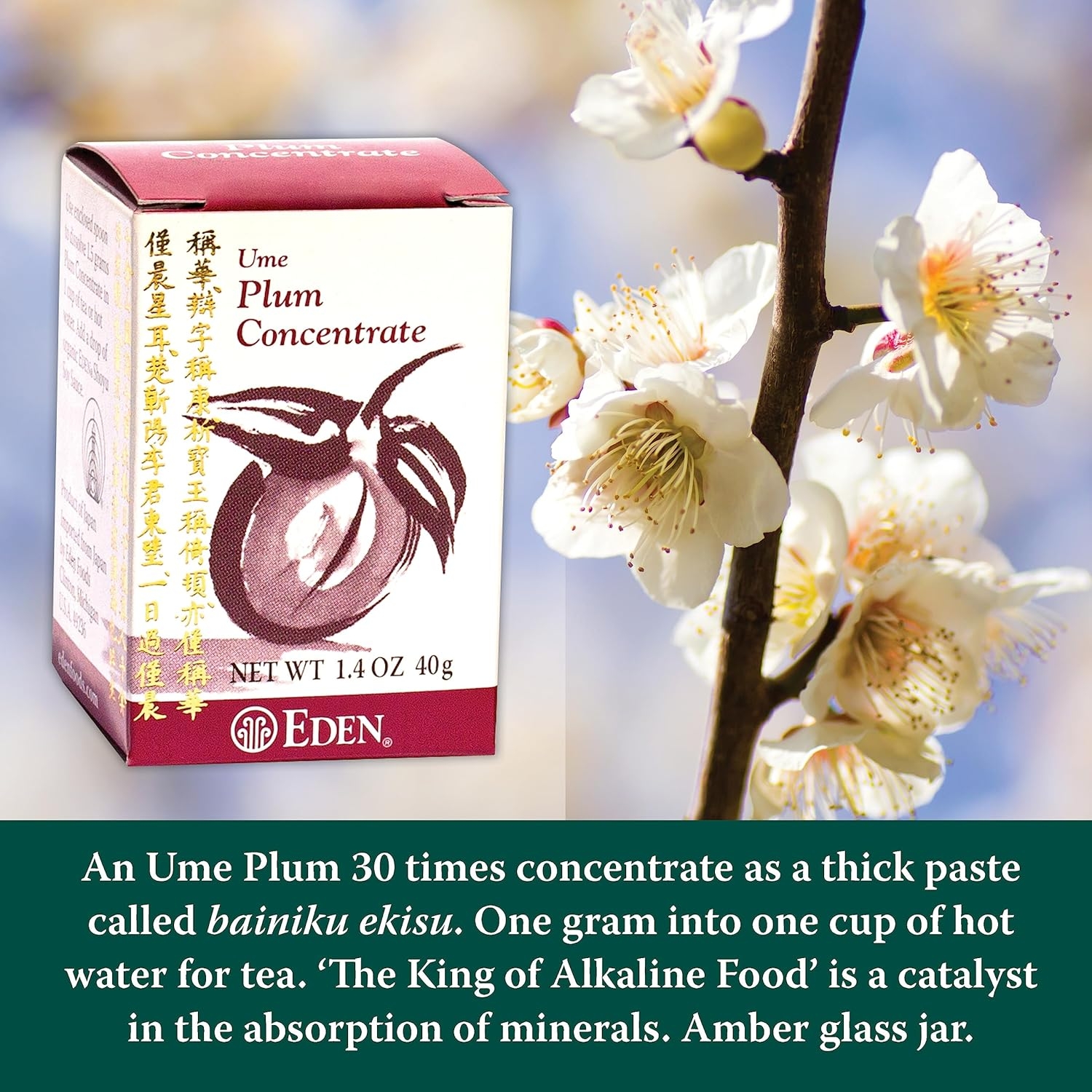
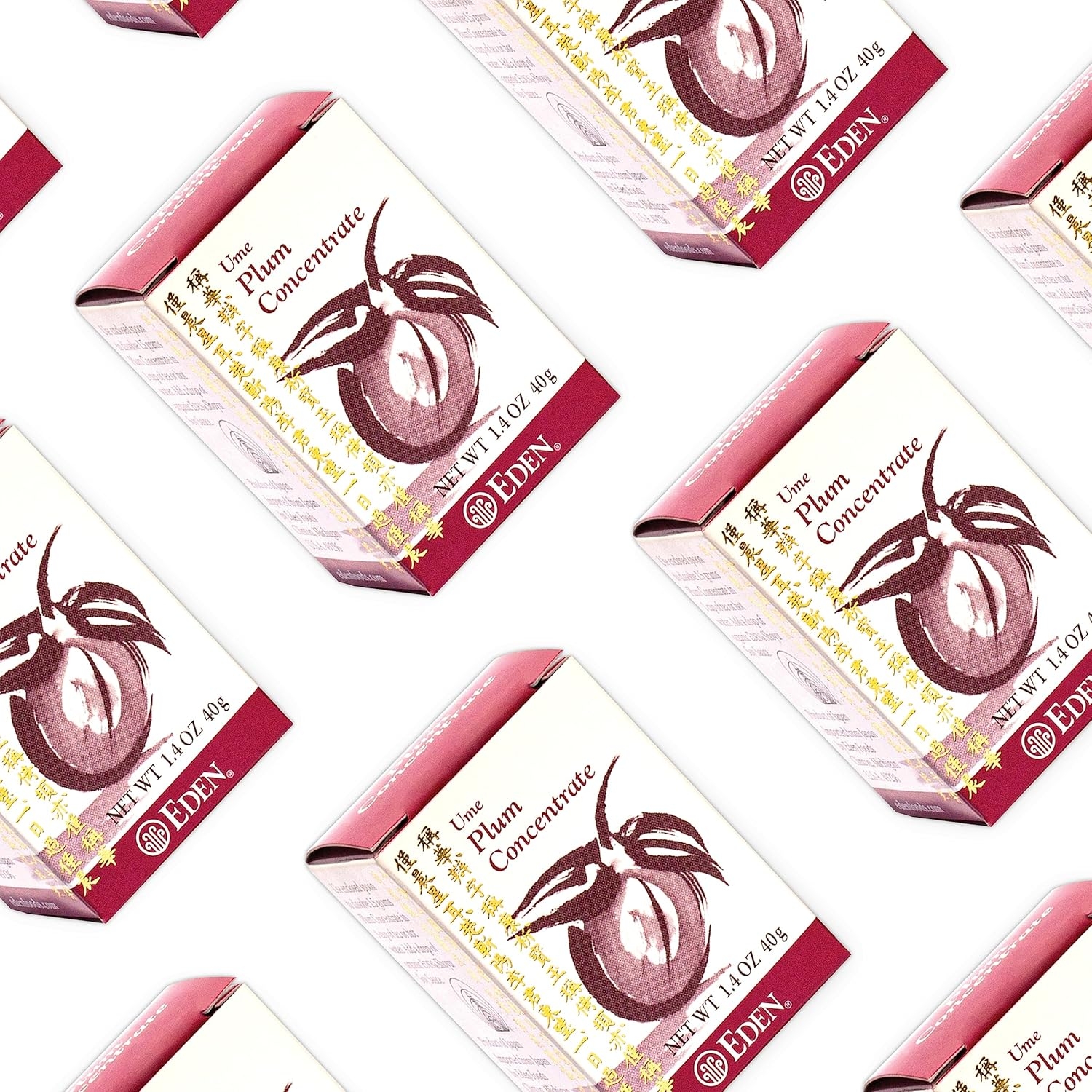
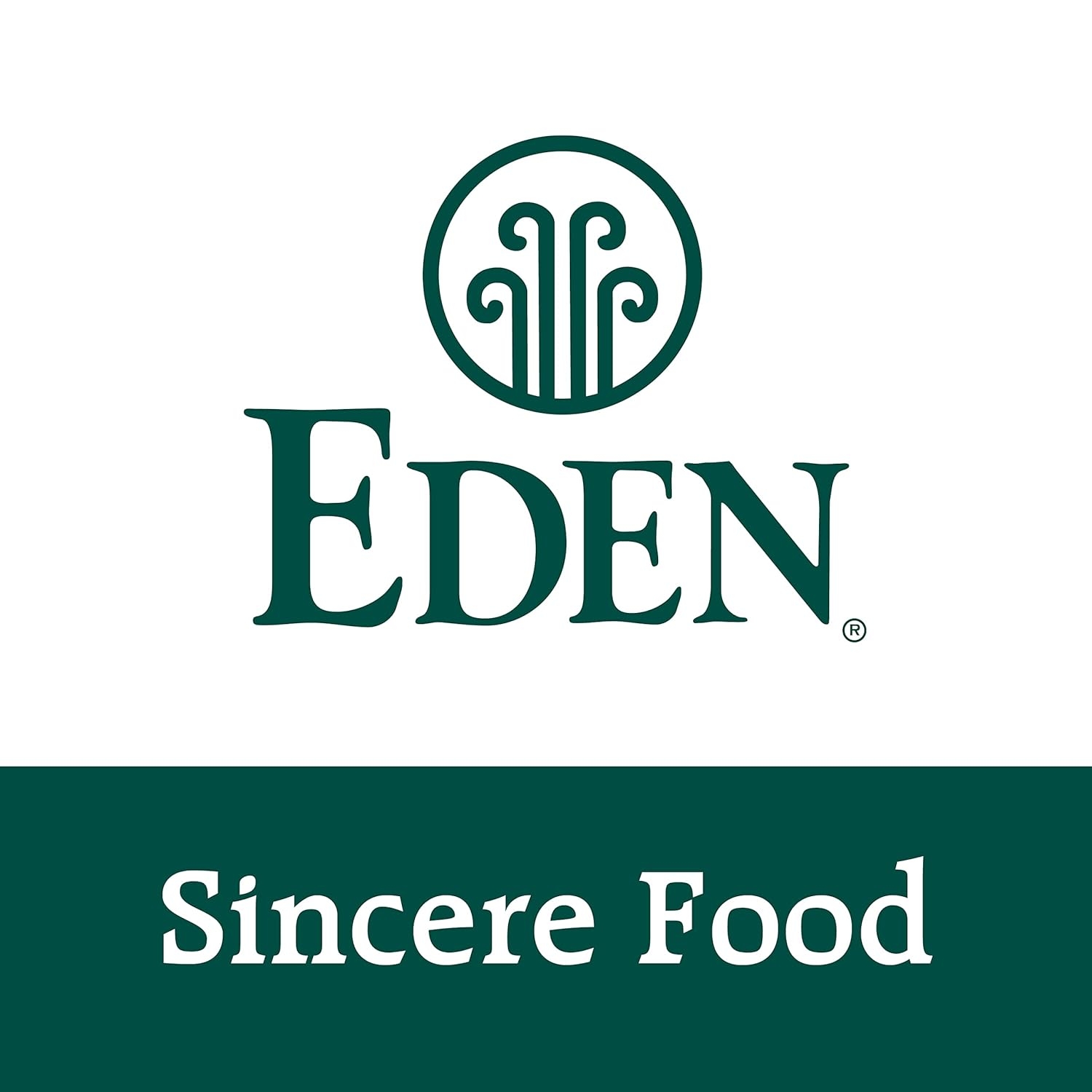
From the manufacturer

Eden Ume Plum Concentrate, Bainiku Ekisu
Eden Plum Concentrate is made in Japan from unripe green ume plums. The plums are harvested, washed, soaked and then pressed. The juice is slowly cooked down over 48 hours to produce a thick, dark syrup concentrate. For every kilogram (2.2 lb.) of fresh plums, only 20 grams of ume concentrate is obtained, resulting in 30 times the concentration of pickled ume plums without the high sodium content of umeboshi plums. The concentrate is sealed in brown glass bottles to preserve and protect freshness. Eden Plum Concentrate contains no artificial colors or preservatives.

About Us
Eden Foods began in southern Michigan in the late 1960s amongst friends sourcing natural food. Youth motivated by study of a worldwide phenomenon stemming from macrobiotics; the centering of ones eating around whole grain and seasonal local plant foods that are not toxic chemical adulterated or nutrient depleted.
Natural foods were simply not available at the time, so an Eden Foods Co-op was started to acquire them. This lead to co-op members traveling rural roads, knocking on doors, looking for farmers to grow food using organic methods.
The Eden co-op grew into offering whole grains, beans, soyfoods, sea vegetables, miso, cereals, unrefined vegetable oils, seed and nut butters, and the like. It expanded adding a cafeteria, bakery, and books which became known as the Eden Deli. It was one of very few places in the U.S.A. where you could get natural, organic, macrobiotic food.
In 1972 Eden opened its first warehouse and established relations with artisan Japanese traditional food makers. Imports of sea vegetables, teas, miso, shoyu, umeboshi plums, kuzu root starch, rice vinegar, rice bran pickles, mirin, etc. followed. This solidified Eden as an important natural food source for the United States and Canada.







